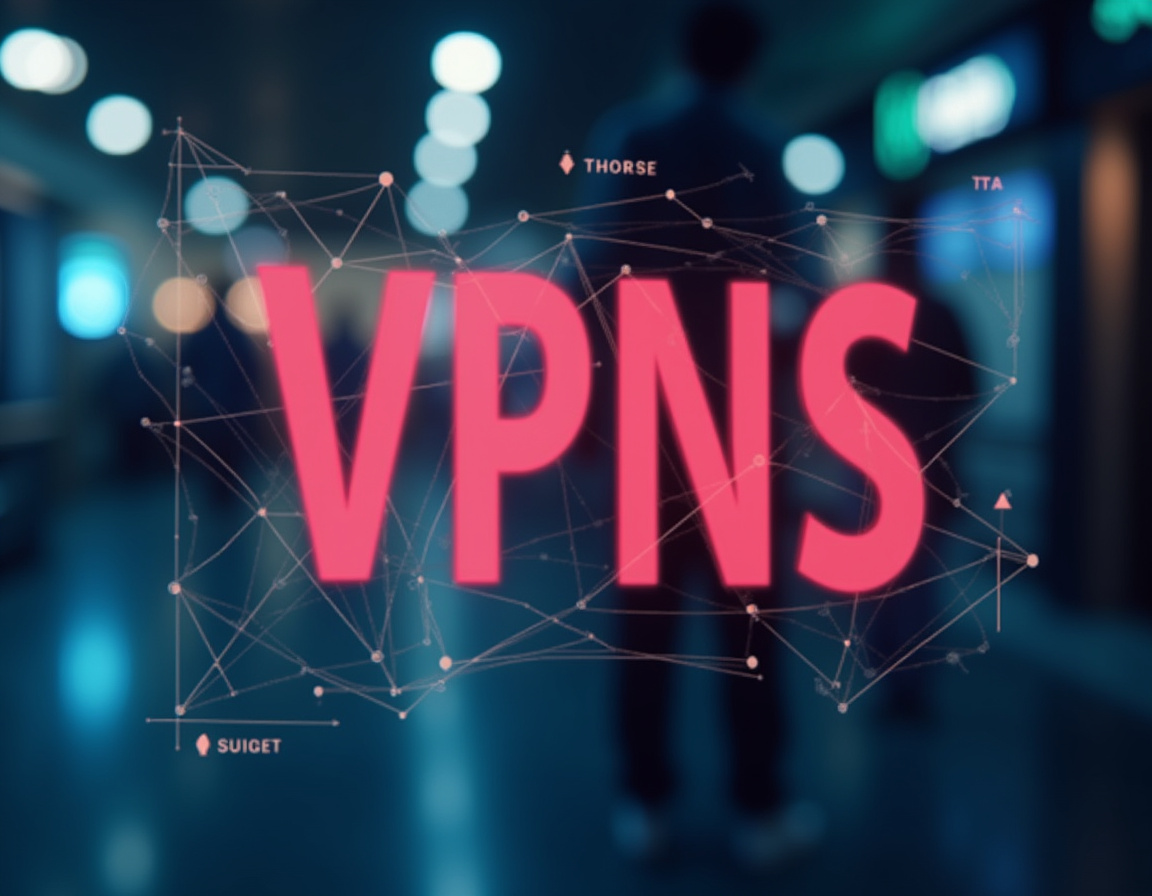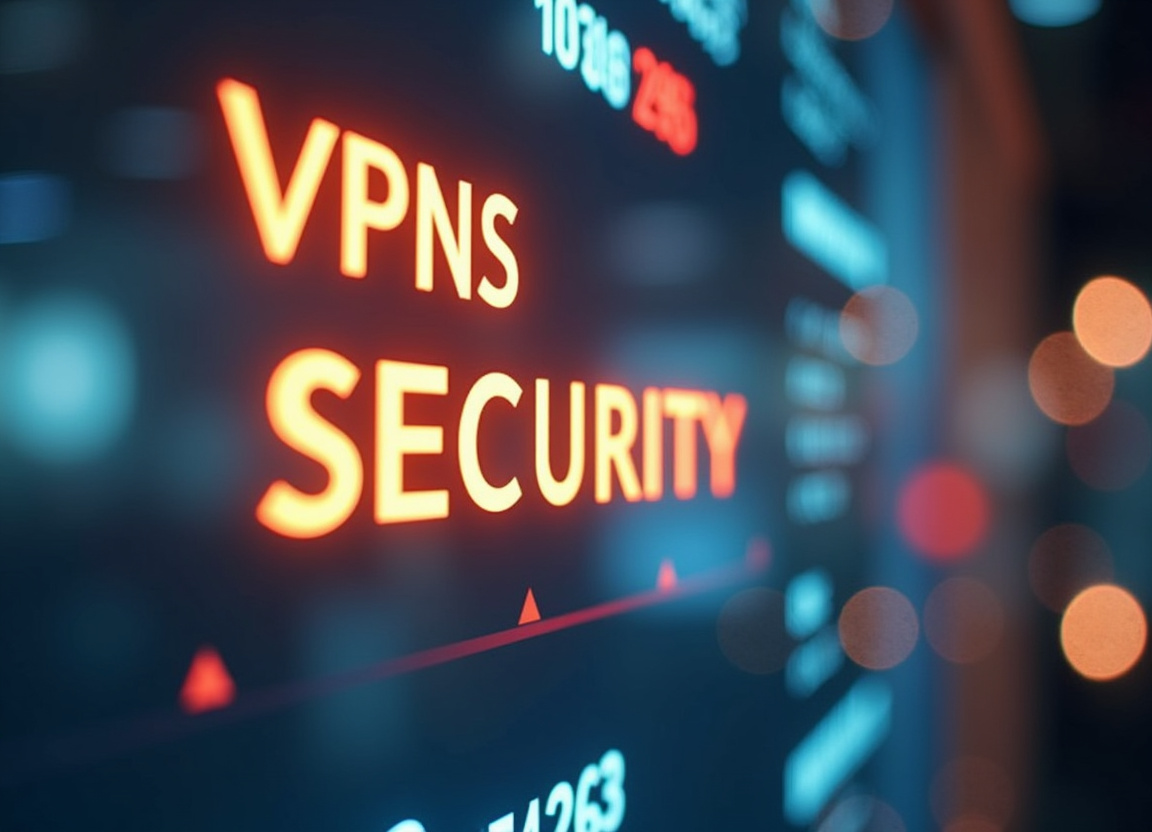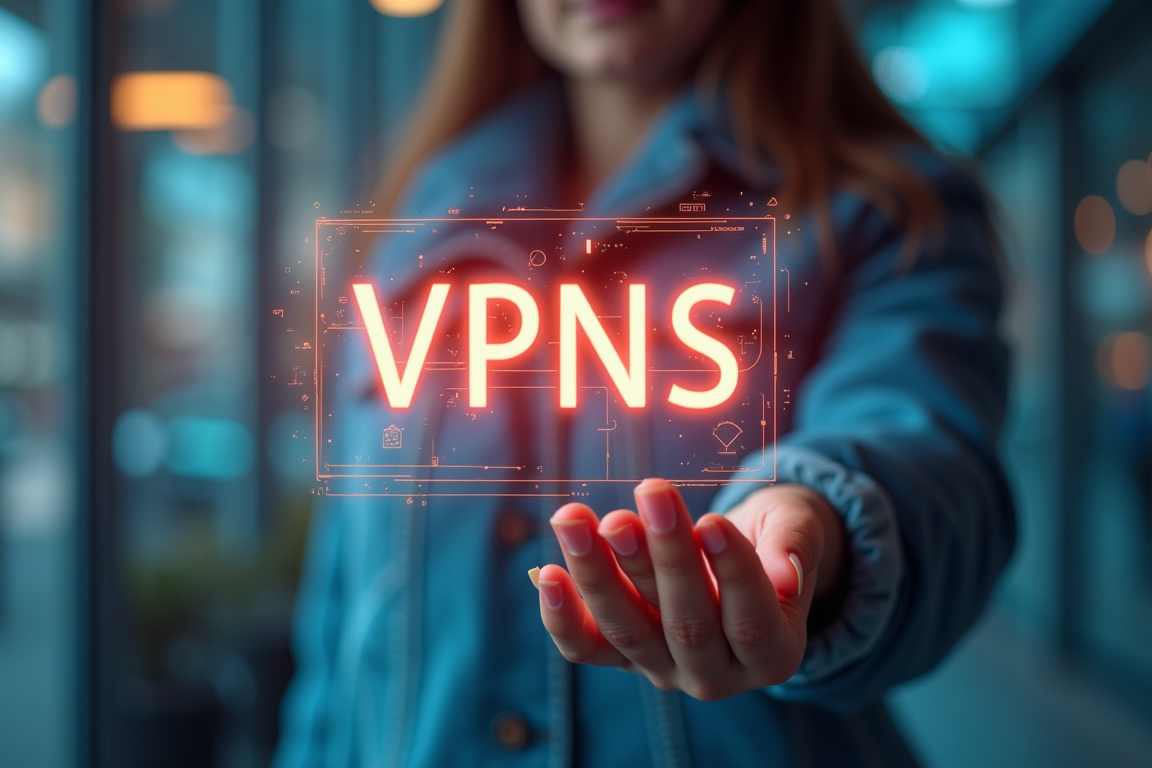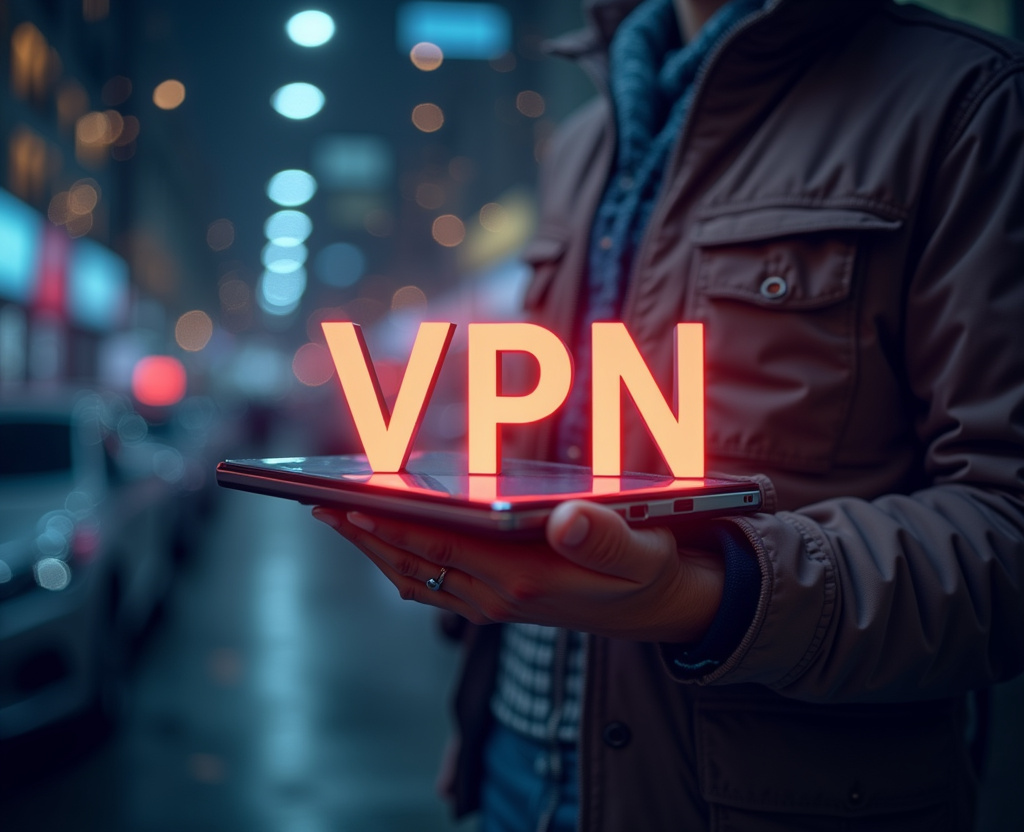VPNs for Boutique Retail Outlets: Securing Payment Processes
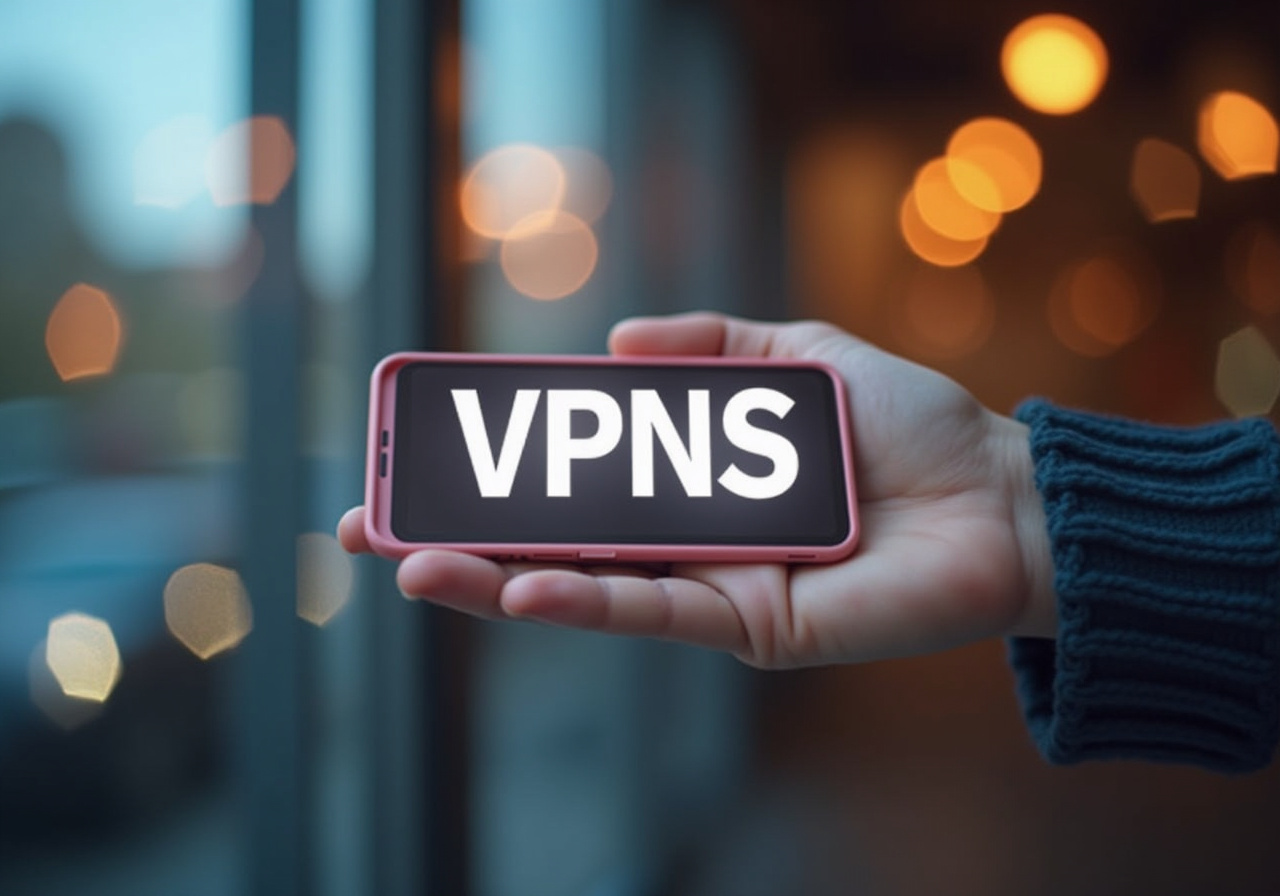
Table of Contents
The Critical Need for VPNs in Online Retail: Safeguarding Transactions and Customer Data
In the intricate tapestry of the modern retail world, boutique outlets stand as unique threads, offering curated experiences and personalized services that distinguish them from larger, more impersonal chains. However, this distinctive charm also comes with specific vulnerabilities, particularly in the realm of cybersecurity. Unlike their corporate counterparts with extensive IT infrastructure and dedicated security teams, boutique retailers often navigate the digital landscape with limited resources, making them prime targets for cyber threats seeking to exploit weaknesses in their systems.
One of the most critical areas of concern is the security of payment processes and the safeguarding of sensitive customer information. A seemingly innocuous data breach can trigger a cascade of disastrous consequences, ranging from significant financial losses and legal repercussions to irreparable damage to reputation and a profound erosion of customer trust. In this context, a Virtual Private Network (VPN) emerges as a powerful and accessible tool for boutique retail outlets, providing a much-needed layer of protection against the ever-evolving threat landscape.
The implementation of a robust VPN solution isn't merely a technological upgrade; it's a strategic investment in the long-term viability and success of the business. The core functionality of a VPN lies in creating a secure, encrypted tunnel between the user's device, whether it's a point-of-sale (POS) system, a laptop used for managing online orders, or even a mobile device used for inventory management, and a remote server. This encrypted connection acts as a shield, protecting data from interception and unauthorized access.
Imagine a secret, invisible pipeline through which your data flows, rendering it unintelligible to anyone attempting to eavesdrop. This is precisely what a VPN achieves. In practical terms, this means that sensitive information such as credit card details, billing addresses, customer names, and other Personally Identifiable Information (PII) is protected from prying eyes, preventing hackers and malicious actors from stealing it.
For boutique retailers processing payments online through e-commerce platforms or in-store via POS systems, this encryption is absolutely paramount. Without a VPN, data transmitted over public Wi-Fi networks, which are often employed for convenience and cost-effectiveness, or even seemingly secure private networks, can be easily intercepted using readily available hacking tools. Cybercriminals can then exploit this stolen data to commit fraud, identity theft, or other malicious activities, potentially holding the boutique retailer liable for significant damages.
Beyond the essential encryption capabilities, VPNs offer another critical layer of protection by masking the user's IP address. An IP address is a unique identifier assigned to every device connected to the internet, revealing the user's approximate location and potentially exposing their online activities. By routing internet traffic through a remote server, a VPN effectively hides the user's real IP address and replaces it with the IP address of the VPN server.
This anonymization makes it significantly more difficult for attackers to track the retailer's online activities, monitor their network traffic, or target them with specific types of cyberattacks. This is particularly beneficial for boutique retailers who may be targets of competitors seeking to gain an unfair advantage or malicious individuals attempting to disrupt their operations through Distributed Denial-of-Service (DDoS) attacks. Furthermore, reputable VPN services incorporate a variety of advanced security features that enhance their overall effectiveness.
One such feature is a "kill switch," which automatically terminates the internet connection if the VPN connection unexpectedly drops. This is a crucial safeguard that prevents unencrypted data from being transmitted in the event of a VPN failure, ensuring that sensitive information remains protected at all times. Other advanced features may include DNS leak protection, which prevents the user's DNS queries from being exposed, and malware and phishing protection, which alerts users to potentially malicious websites and files.
Selecting the optimal VPN solution for a boutique retail outlet requires deliberate consideration of several key factors. The number of devices that need to be protected, the volume of data being transmitted, the required bandwidth, and the level of technical sophistication within the organization are all important considerations. Opting for a VPN provider that offers a user-friendly interface, reliable customer support, and a clear privacy policy is essential for ensuring ease of use and peace of mind.
In conclusion, the proactive implementation of a VPN is a critical step that boutique retailers can take to protect their businesses, customers, and reputations from the ever-present and evolving threat of cybercrime.
payment process security
The significance of cannot be overstated for boutique retail outlets. In today's digital age, online and in-store transactions serve as the lifeblood of these businesses, fueling their growth and enabling them to connect with customers both locally and globally. However, this reliance on digital payment systems also introduces a range of security risks, making the protection of payment processes a paramount concern.
Any compromise in the security of these processes, whether it's a data breach, a malware infection, or a phishing attack, can have devastating consequences for a boutique retailer. The financial losses associated with such incidents can be substantial, encompassing not only the cost of recovering from the attack but also the potential fines, legal fees, and compensation payments to affected customers. Moreover, a data breach can severely damage a retailer's reputation, leading to a loss of customer trust and a decline in sales.
In a world where consumers are increasingly aware of data privacy and security issues, a single security incident can have a lasting negative impact on a brand's image and customer loyalty. Therefore, implementing a comprehensive approach to payment process security is not merely a compliance requirement; it's a fundamental business imperative. A VPN plays a critical role in safeguarding payment processes and protecting sensitive financial data.
When customers make purchases online, their credit card details, billing addresses, and other personal information are transmitted over the internet. Without proper encryption, this data is vulnerable to interception by hackers, who can then use it for fraudulent purposes. They can make unauthorized purchases, steal identities, or sell the data on the dark web.
A VPN encrypts all data transmitted between the customer's device and the retailer's server, creating a secure, private tunnel that prevents unauthorized access. This encryption ensures that even if the data is intercepted, it is unreadable and useless to cybercriminals. The algorithms used by modern VPNs are incredibly robust, making it virtually impossible for attackers to crack the encryption in a reasonable amount of time.
Similarly, in-store transactions using point-of-sale (POS) systems are also susceptible to security threats. POS systems are essentially computers that process payment information and manage inventory. If the POS system is connected to a public Wi-Fi network or a poorly secured private network, it can be vulnerable to malware attacks, data breaches, and other forms of cybercrime.
Hackers can exploit vulnerabilities in the POS system to steal payment card data, install keyloggers to capture sensitive information, or even take control of the system remotely. A VPN can create a secure, encrypted tunnel for the POS system, protecting it from external threats and preventing the theft of payment information. This is particularly important for boutique retailers that operate multiple POS systems in different locations, as a VPN can ensure that all of these systems are securely connected to the retailer's network.
One of the key advantages of using a VPN for retail payment process security is its ability to bypass geographical restrictions and censorship. In some countries, certain payment gateways or websites may be blocked, making it difficult for boutique retailers to process international transactions or access essential business tools. A VPN allows retailers to connect to servers in different locations, effectively bypassing these restrictions and enabling them to conduct business without interruption.
This can be particularly useful for retailers that sell products or services online to customers in different countries. Furthermore, a VPN can help boutique retailers comply with Payment Card Industry Data Security Standard (PCI DSS) requirements. PCI DSS is a set of security standards designed to protect credit card data and prevent fraud.
The standard applies to all businesses that accept, process, store, or transmit credit card information. Many of the requirements of PCI DSS, such as encrypting cardholder data in transit and protecting network traffic, can be easily met by implementing a VPN. By demonstrating compliance with PCI DSS, boutique retailers can build trust with their customers and payment processors, ensuring that their business is perceived as secure and reliable.
In addition to protecting payment processes, a VPN can also help to prevent phishing attacks and other forms of social engineering. Phishing attacks involve tricking individuals into revealing sensitive information such as passwords and credit card details through fraudulent emails or websites. By using a VPN, boutique retailers can mask their IP address and location, making it more difficult for attackers to target them with phishing scams.
They can also use the VPN to access websites and check the validity of emails from a secure environment, reducing the risk of falling victim to these types of attacks.
customer information
The protection of is paramount for building trust and maintaining a positive reputation in the competitive retail landscape. In today’s data-driven world, boutique retail outlets often collect a wealth of customer data, including names, addresses, email addresses, phone numbers, purchase history, browsing habits, and even demographic information. This data is invaluable for various business purposes, such as personalizing marketing campaigns, providing tailored customer service, analyzing customer behavior, and improving overall business strategies.
However, this abundance of customer data also represents a significant responsibility and a considerable security risk if not properly protected. A data breach involving customer information can lead to severe consequences, including financial penalties, legal liabilities, reputational damage, and a loss of customer trust. In many jurisdictions, data protection laws mandate that businesses take appropriate measures to safeguard customer data and notify affected individuals in the event of a breach.
Failure to comply with these laws can result in hefty fines and other penalties. Moreover, a data breach can damage a retailer's reputation, causing customers to lose trust in the business and take their patronage elsewhere. In a world where consumers are increasingly concerned about data privacy and security, a commitment to protecting customer information is essential for maintaining a competitive edge and building long-term customer loyalty.
A VPN provides an essential layer of security for safeguarding customer information by encrypting all data transmitted between the retailer and its customers. This encryption ensures that any data exchanged, whether through online forms, email communications, or mobile apps, is protected from unauthorized access and interception. When customers submit their personal information through a website or mobile app, the data is encrypted before being transmitted over the internet.
This encryption makes it extremely difficult for hackers or other malicious actors to intercept and decipher the data. Similarly, when retailers send emails to customers, a VPN can encrypt the email communications to protect the confidentiality of the messages. This is particularly important when the emails contain sensitive information, such as order details, account information, or promotional offers.
In addition to encryption, VPNs also offer a range of other security features that can help to protect customer information. For example, many VPNs include firewalls that block malicious traffic and prevent hackers from accessing the retailer's network. They may also include malware protection that scans for and removes viruses, spyware, and other types of malicious software that could compromise customer data.
Furthermore, some VPNs offer DNS leak protection, which prevents the user's DNS queries from being exposed to third parties, protecting the user's browsing history and online activities. Beyond these technical safeguards, a VPN can also help to protect customer information by masking the retailer's IP address and location. This anonymization makes it more difficult for hackers to target the retailer with phishing attacks, denial-of-service attacks, or other types of cybercrime.
By masking the retailer’s actual location, a VPN can create a layer of obfuscation that adds to the overall security of the network. This feature is also beneficial for protecting the privacy of boutique retail owners and employees who may be working remotely or accessing sensitive business information from public Wi-Fi networks. When selecting a VPN for protecting customer information, it is important to choose a reputable provider that has a strong track record of security and privacy.
The VPN provider should have a clear and transparent privacy policy that outlines how they collect, use, and protect user data. They should also use strong encryption protocols, such as AES-256, and offer a range of security features, such as a kill switch, DNS leak protection, and malware protection. It is also advisable to choose a VPN provider that has a no-logs policy, meaning that they do not track or store user activity.
This ensures that the retailer's browsing history, IP address, and other sensitive information remain private and confidential. Finally, it is essential to educate employees about the importance of data security and provide them with training on how to use the VPN and other security tools effectively. This will help to ensure that customer information is protected not only by technology but also by human awareness and responsible behavior.
Transaction privacy
is a cornerstone of secure and trustworthy commerce, especially for boutique retail outlets that pride themselves on building personal relationships with their clientele. Customers entrust these businesses with sensitive payment and personal information, expecting that this data will be handled with the utmost care and discretion. A breach of transaction privacy can not only lead to financial losses and reputational damage but can also erode the very foundation of trust upon which these relationships are built.
Protecting the privacy of transactions involves ensuring that payment details, purchase history, and other related information remain confidential and are not accessible to unauthorized individuals. This requires implementing robust security measures to prevent data interception, hacking, and other forms of cybercrime that could compromise the privacy of customer transactions. In an increasingly interconnected digital world, transaction privacy is becoming increasingly challenging to maintain.
As more and more transactions are conducted online or through networked systems, the risk of data breaches and privacy violations continues to grow. Boutique retail outlets must, therefore, take proactive steps to protect the privacy of their customers' transactions and maintain their trust. A VPN is a powerful tool for enhancing transaction privacy by encrypting all data transmitted between the customer and the retailer.
This encryption scrambles the data, making it unreadable to anyone who might intercept it. In essence, it creates a secure, private tunnel for transaction data, shielding it from prying eyes. When a customer makes an online purchase, their payment information, shipping address, and other details are transmitted over the internet.
Without encryption, this data could be intercepted by hackers or other malicious actors who could then use it to commit fraud or identity theft. A VPN encrypts this data, ensuring that it remains confidential and protected from unauthorized access. Similarly, when a customer makes an in-store purchase using a credit card or debit card, the transaction data is transmitted between the POS system and the payment processor.
A VPN can encrypt this data, protecting it from interception and ensuring the privacy of the transaction. In addition to encryption, VPNs also offer other features that can help to enhance transaction privacy. For example, many VPNs offer IP address masking, which conceals the retailer's IP address and location, making it more difficult for hackers to target the retailer with cyberattacks.
They may also offer DNS leak protection, which prevents the user's DNS queries from being exposed to third parties, protecting the user's browsing history and online activities. Another important aspect of transaction privacy is ensuring that the retailer itself does not collect or store unnecessary data about customer transactions. Boutique retail outlets should only collect the data that is strictly necessary for processing the transaction and fulfilling the order.
They should also have a clear and transparent data retention policy that outlines how long they will store transaction data and what measures they will take to protect its privacy. Customers should be informed about what data is being collected, how it will be used, and their rights to access, correct, or delete their data. In addition to these technical and policy measures, boutique retail outlets should also train their employees on the importance of transaction privacy and how to handle customer data securely.
Employees should be instructed to never share customer data with unauthorized individuals, to use strong passwords, and to be aware of phishing scams and other social engineering attacks. Regular security audits should be conducted to identify vulnerabilities in the retailer's systems and to ensure that all security measures are up to date. By implementing these measures, boutique retail outlets can significantly enhance the privacy of their customers' transactions and build a reputation for trustworthiness and security.
This can help to attract and retain customers, boost sales, and ensure the long-term success of the business. In conclusion, protecting transaction privacy is not just a legal or regulatory requirement; it is a fundamental ethical obligation that boutique retail outlets owe to their customers. By taking proactive steps to safeguard transaction data, these businesses can build trust, foster loyalty, and create a positive and secure shopping experience for their clientele.
consumer confidence
Boosting is paramount for boutique retail outlets striving to thrive in a competitive market. Consumers are increasingly discerning and security-conscious, and their purchasing decisions are heavily influenced by their perception of a retailer's commitment to protecting their data and ensuring a safe shopping experience. When customers feel confident that their personal and financial information is secure, they are more likely to make purchases, remain loyal to the brand, and recommend the business to others.
Conversely, if customers perceive a retailer as being lax about security, they may hesitate to shop there, fearing that their data could be compromised. A data breach or security incident can severely damage consumer confidence, leading to a decline in sales, negative publicity, and a loss of customer trust that can take years to rebuild. Therefore, boutique retail outlets must prioritize security measures that instill confidence in their customers and demonstrate a commitment to protecting their privacy.
Building consumer confidence goes beyond simply implementing technical security measures; it also involves communicating effectively with customers about the steps the retailer is taking to protect their data and ensure a safe shopping experience. Transparency, honesty, and a proactive approach to security are essential for building trust and fostering long-term customer relationships. A VPN contributes significantly to boosting consumer confidence by providing a visible and tangible demonstration of a retailer's commitment to security.
When customers know that a retailer is using a VPN to protect their data, they are more likely to feel confident that their information is safe and secure. This can be particularly important for online transactions, where customers may be hesitant to share their credit card details and personal information without assurance that their data will be protected. By displaying a VPN badge or security seal on their website, boutique retail outlets can signal to customers that they are taking extra precautions to protect their data.
This can help to alleviate concerns about online security and encourage customers to complete their purchases with confidence. In addition to displaying a VPN badge, retailers can also communicate with customers about the steps they are taking to protect their data through blog posts, social media updates, and email newsletters. This can help to educate customers about the importance of online security and to reassure them that the retailer is committed to protecting their privacy.
Beyond communicating with customers, boutique retail outlets can also enhance consumer confidence by complying with industry security standards and regulations. For example, businesses that accept credit card payments must comply with the Payment Card Industry Data Security Standard (PCI DSS). Complying with PCI DSS demonstrates a commitment to protecting cardholder data and can help to build trust with customers and payment processors.
Similarly, complying with data privacy regulations, such as the General Data Protection Regulation (GDPR), can demonstrate a commitment to protecting customer data and can help to attract and retain customers who are concerned about data privacy. In addition to these external certifications, boutique retail outlets can also implement internal security policies and procedures to protect customer data. These policies should address issues such as data access controls, data encryption, data retention, and data breach response.
Regular security audits should be conducted to identify vulnerabilities in the retailer's systems and to ensure that all security measures are up to date. By taking these steps, boutique retail outlets can significantly enhance consumer confidence and create a positive and secure shopping experience for their customers. This can help to attract and retain customers, boost sales, and ensure the long-term success of the business.
Stay Updated
Get the latest VPN news, tips, and exclusive deals to your inbox.
